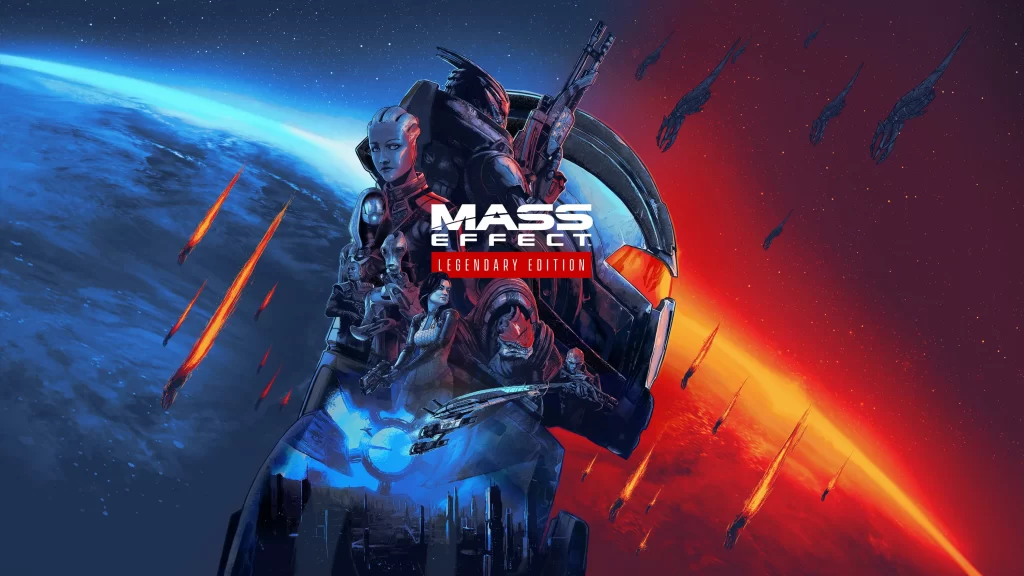When I first heard about Mass Effect, I didn’t expect it to draw me in as much as it did. But here I am, several years into playing this universe, and I can’t say I’ve fully grasped it, as each installment hides a ton of fascinating details and deep mechanics. Mass Effect isn’t just a space saga; it’s an epic story about leadership, self-sacrifice, and choices that affect the fates of entire civilizations.
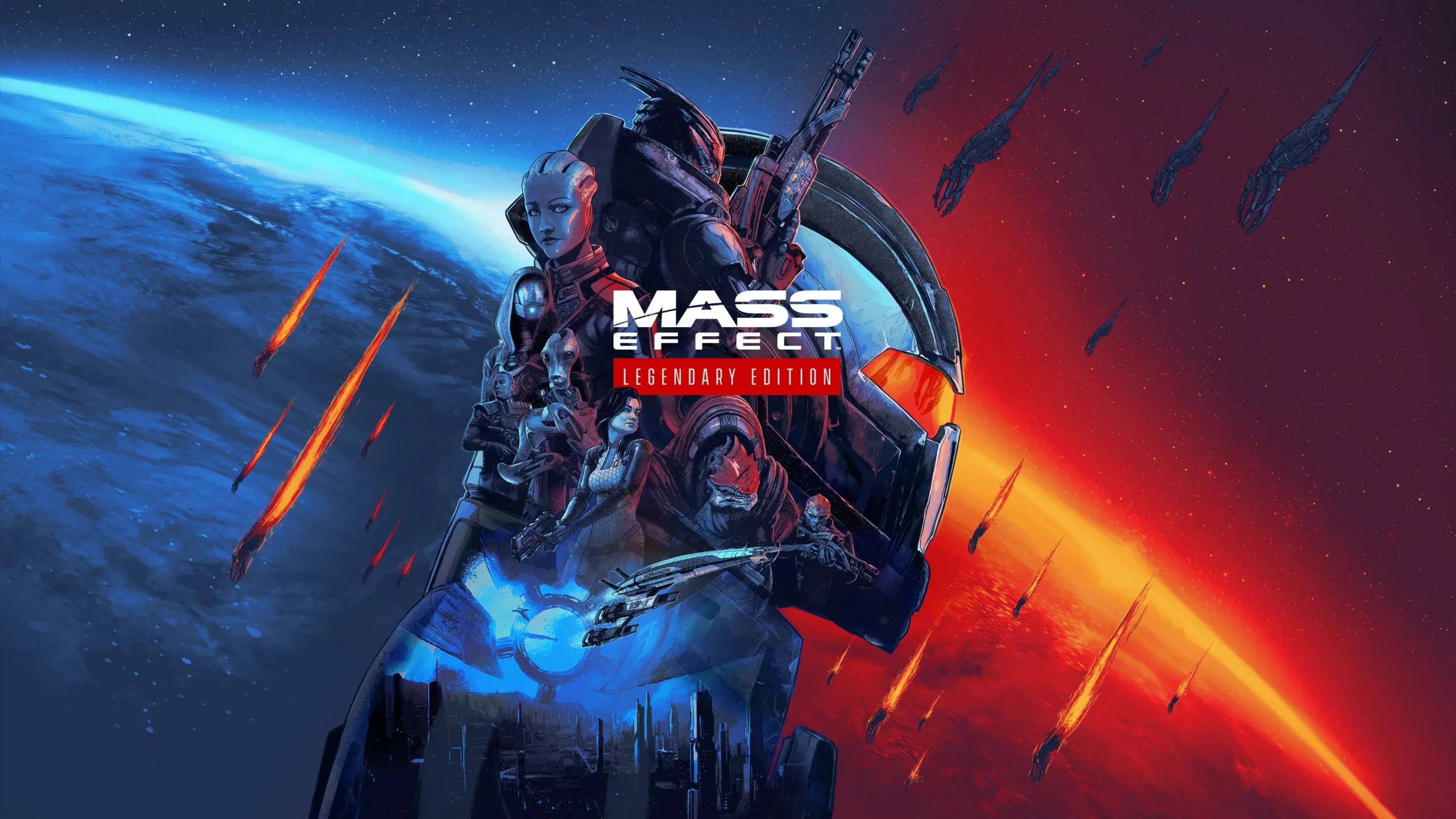
Mass Effect (The First Game)
The first Mass Effect plunges us into a future where humanity is actively exploring space, and the player assumes the role of Commander Shepard — the protagonist, who can be either male or female, with unique skills and abilities. This entry introduces us to the characteristic RPG elements of Bioware: the ability to develop the character, improve abilities, and make significant moral decisions.
What truly captivates in Mass Effect is the ability to choose who you want to be. Shepard can be a tough leader, driven to succeed at any cost, or a compassionate commander who makes decisions based on morality. Through the choices we make, the game reveals its philosophy. Every choice in the first game affects the development of events, especially when considering the potential consequences for relationships with crew members.
Mass Effect immerses players in the world of interstellar travel and politics. The story begins with Shepard receiving an assignment to uncover the mystery of an ancient alien threat, hidden behind centuries of oblivion. Along the way, we meet unique characters, each with their own goals, personal stories, and motivations. One of the strongest elements of the game is the diversity of crew members — from Tali, the alien soldier, to the unyielding Garrus and the mysterious Liara.

The gameplay in the first installment is a mix of tactical combat experience with RPG elements. You can control the battle actions using pauses and strategize your moves. Plus, the character development system, skill choices, and specialization options make the game quite flexible.
Mass Effect 2
The second installment of Mass Effect takes things to a whole new level. The combat system has been significantly improved, making battles feel more dynamic and intense than in the first game. In Mass Effect 2, we’re tasked with assembling a team for a dangerous mission to save humanity from an unknown alien threat. This expands the storyline and gives players new moral dilemmas, as every decision about who to bring on the team has consequences. For example, your relationships with each crew member can become so close that they affect the outcome of events.
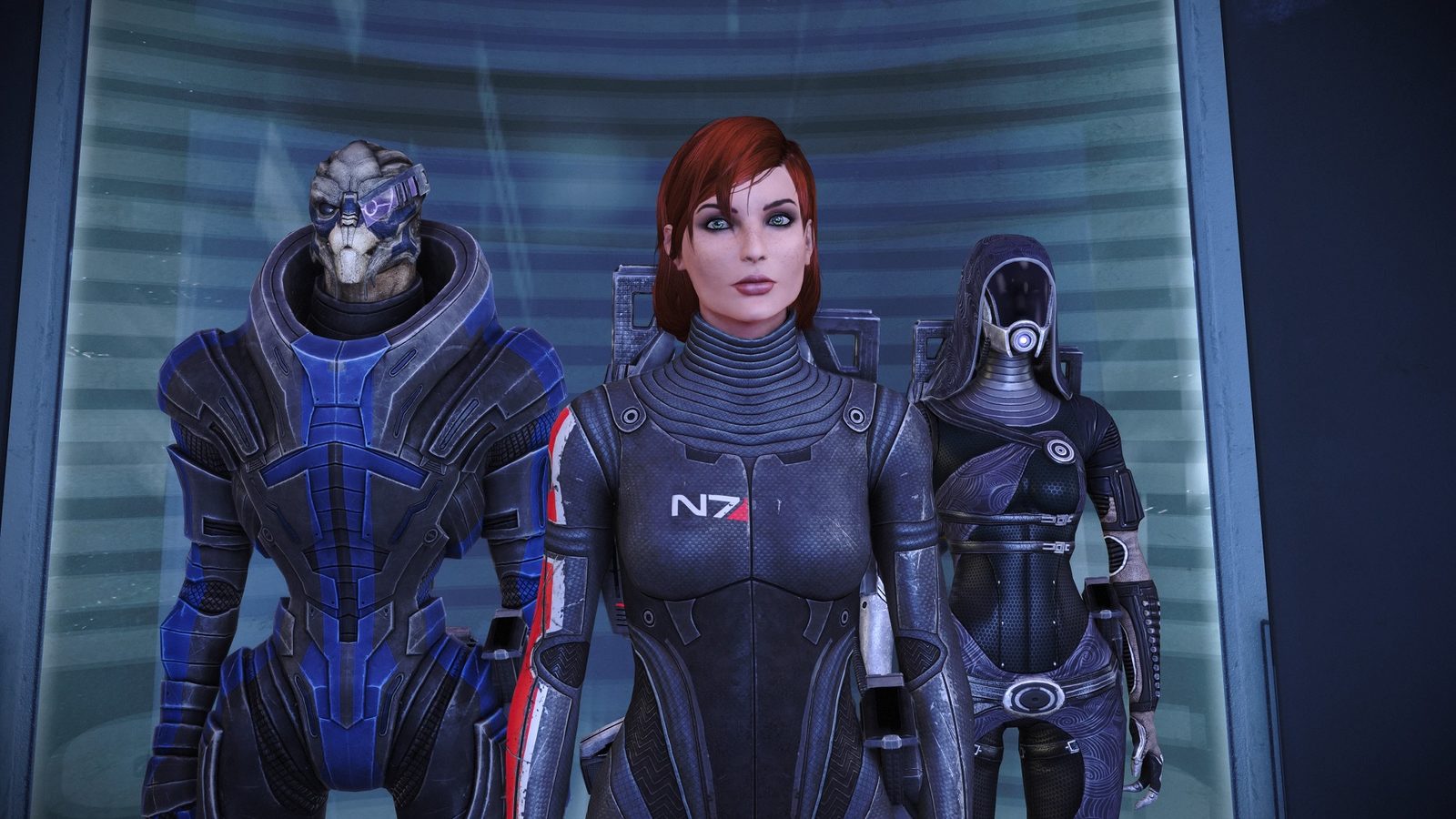
What struck me about Mass Effect 2 was how tightly the story and characters are intertwined. Each crew member has their own history and can either be saved or lost depending on your approach. This was the moment I realized how important the choices are in this game. If you don’t manage to complete the missions for your crew members, they can die. This adds a layer of tension, where every decision feels like a fight for survival rather than just another mission.
Additionally, in Mass Effect 2, the dialogues with characters have been greatly expanded. The “Paragon” and “Renegade” dialogue system returns, but now it’s even deeper. The conversations are far more meaningful, and I found myself facing difficult moral dilemmas, where every word had weight.
Mass Effect 3
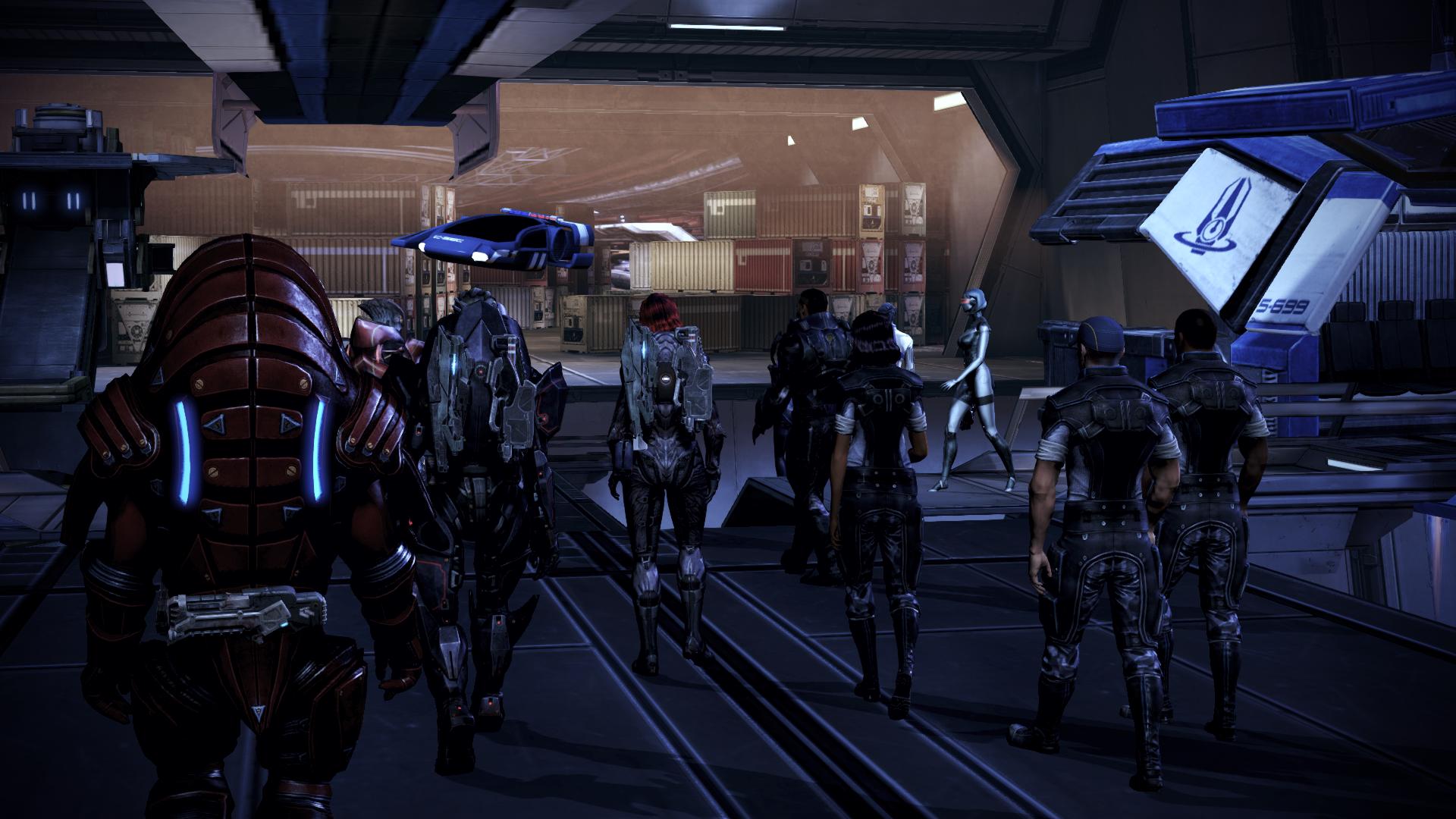
Mass Effect 3 is the culmination of the entire story. Everything we’ve built in the previous two episodes determines the fate of entire civilizations in the final battle against the Reapers — an ancient threat aiming to destroy all life. In this part, the gameplay remains familiar, but now the player must focus on large-scale warfare. We are in the midst of a full-scale war, and unlike the previous installments, where it was crucial to gather a team, in the third part, you must mobilize entire races and unite them against a common enemy.
What changes in the third installment is, of course, the atmosphere: from more localized conflicts, we shift to the fight for humanity’s survival. Now the choices are global, and they affect not only Shepard’s team but the fates of entire species. As a player, I felt that every detail mattered, and my decisions could affect millions of lives.
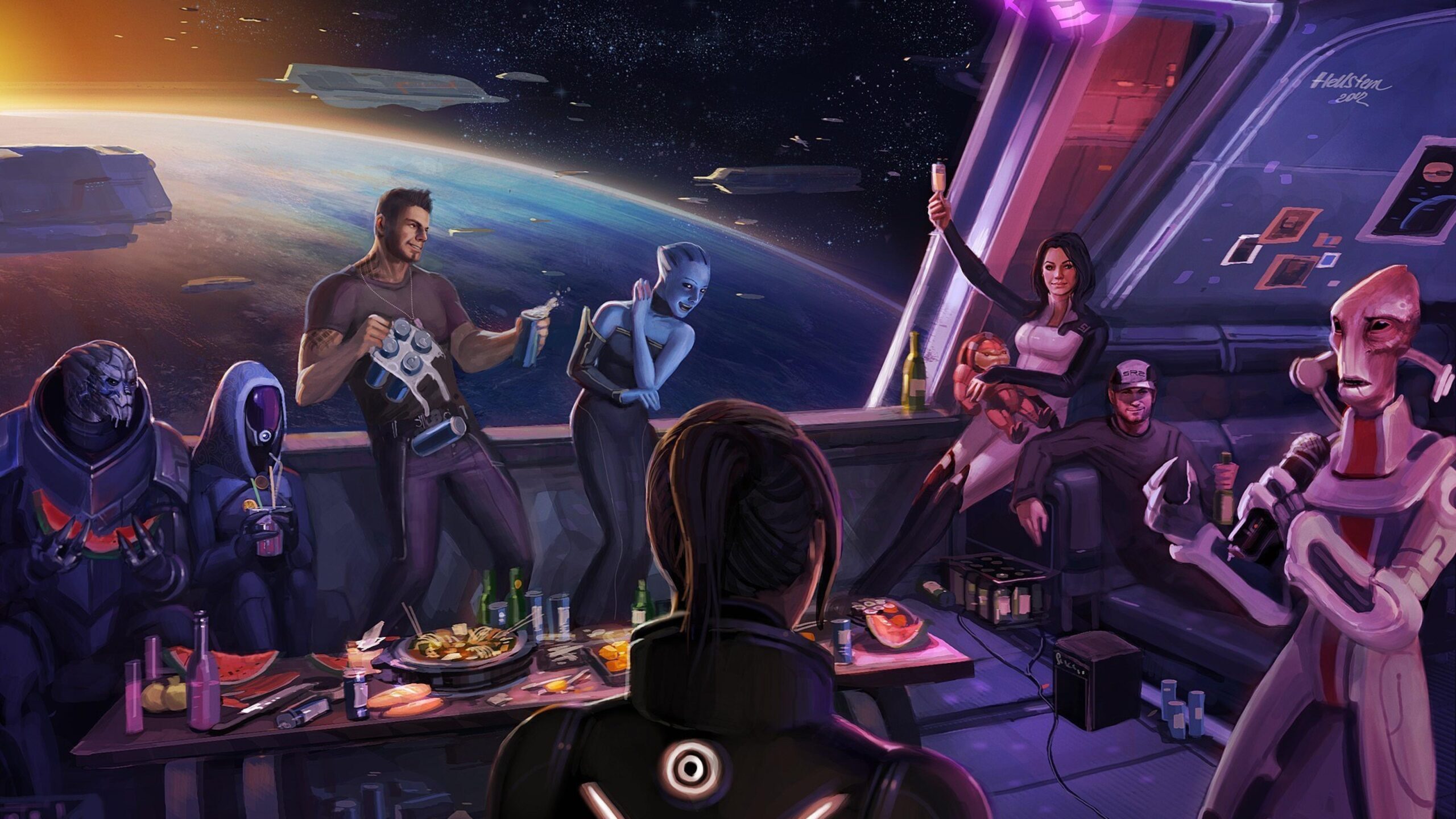
A particularly strong moment was the conclusion of the story, where I realized how every action I made in the previous games led up to this moment. In the finale, the player faces one of the most difficult choices in gaming history. The final scene leaves a lasting impact, and every fan of the series will likely interpret the ending in their own way, as it’s full of ambiguity.
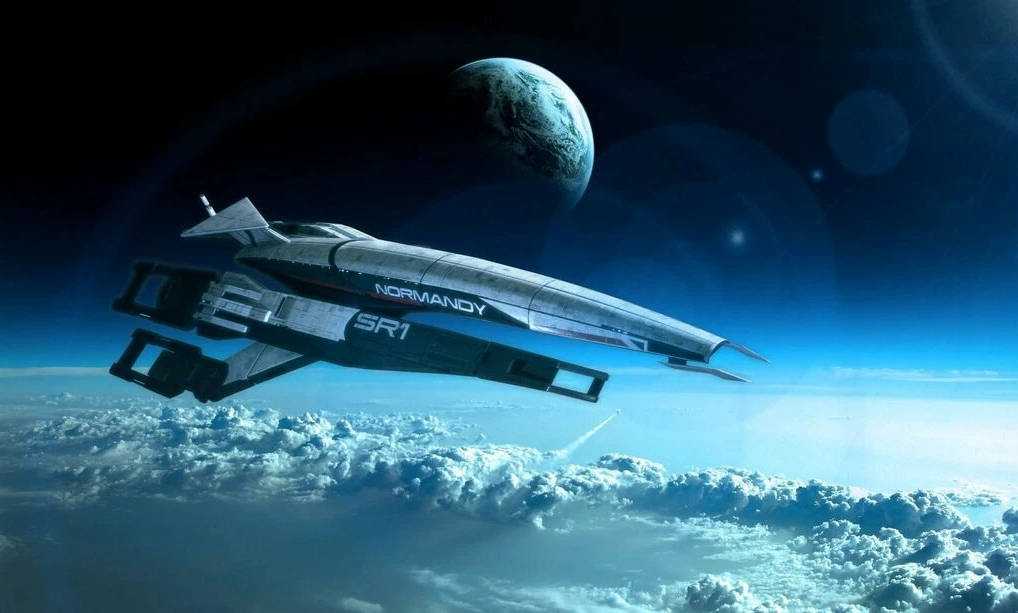
The Overall Summary
Mass Effect isn’t just a game; it’s a whole story where every decision matters, and the characters become your true friends or enemies. It’s a blend of RPG and action that captivates with its atmosphere, the depth of its world, and the complexity of its plot. Mass Effect teaches us that every choice has consequences, that we must fight for our friends, and believe in what we do.
The story, created by BioWare, offers more than just a journey across the galaxy; it’s an exhilarating saga of leadership, duty, loyalty, and self-determination. Mass Effect will remain in memory as one of the most influential and unique game series, creating not only a cult universe but also making players reflect on the importance of choices in real life.

